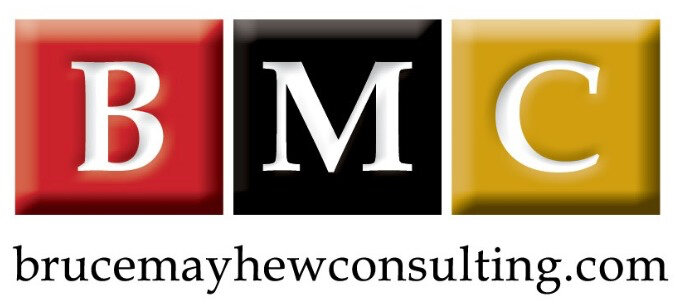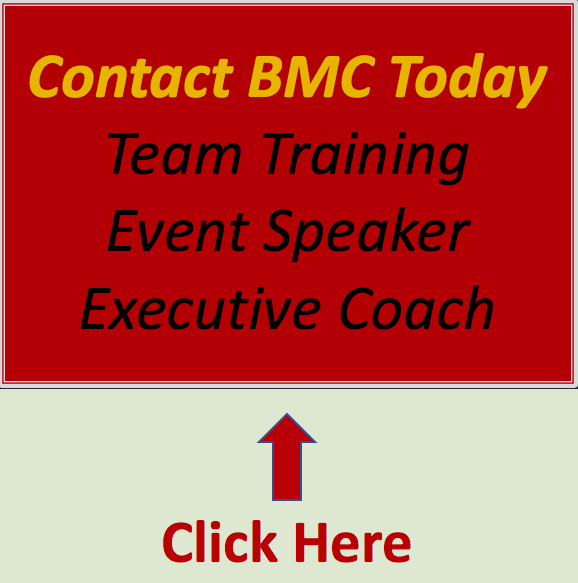Are Generational Differences Important To Study And Discuss?
/Generational differences are real – just like cultural differences are real. In this article we’ll discuss generational differences in the workplace and why discussions about generational differences and generational diversity are important for team success.
What are generational differences? When looking to define generational differences we typically mean differences in experiences, values, beliefs and needs. The answer to the question, “are generational differences important?” depends on how we use the information. If we use it to determine how I will act as an individual or what kind of reward will inspire me, then making assumptions based on what year I was born will likely not do either of us much good. But if we use the information to estimate how a group of consumers in one generation and from one geographic area will respond, we will likely get close to making a good (but not perfect) decision.
This begs the question, “How does labelling employees by generation help or harm employee, team success?”
Overview
Today’s workspaces currently have employees from four generations all holding junior through to senior positions. And of course, each generation brings very different and valuable perspectives, experiences and insights. In addition, on one side of the age spectrum is a large group of young employees who likely are highly educated and are used to a fast-changing world. On the other side of the age spectrum is a large group of older employees with unparalleled experience, institutional knowledge and typically less formal education.
To be clear, I’m not saying Gen Z and Millennial employees don’t have experience, they do; and I’m not saying Gen X and Boomer employees don’t have education because they do. What I’m saying is there are people from four very different generations who all have something unique and very worthwhile to say (and if we know what is good for us and our companies) to be listened to.
Globalization also means we have valued employees (and customers) from many different countries with values, needs and traditions that further add to the complexity and amazing insight of our workspaces. And while I could talk more about cultural differences, for the purpose of this article I’m going to stay with discussions about the importance of generational differences and generational diversity (for the most part).
The diversity and inclusive energy in todays high-functioning workspaces is quite amazing. One of the great trends of the last 10ish years that is adding to this positive energy is that many in the business world are finally seriously focusing on important topics like team development, trust and accountability. Along with the strong focus on diversity and inclusion there is also a heightened refocus on important issues like creativity, equality and accessibility. When we talk about diversity and inclusion in the workplace, we often think of things like race, culture, gender and sexuality. But age is another important aspect within the diversity and inclusion discussion.
For reference, the following are general categories in Canada and the USA. Please note, generational birth ranges do vary from country to country and east to west:
Baby Boomers (born 1946 to 1964)
Generation X (born 1965 to 1980)
Millennials / Generation Y (born 1980 to 1995)
Generation Z (born 1996 to 2010)
Generational Differences Training: Argument For
The simple reality is that there are differences in populations from different generations. For example, some high-level generational differences are as follows:
Boomers grew up in the economic boom following the depression. They had very little in the way of money or possessions and physical labour was the bulk of available work. Hard work and loyalty was part of their basic upbringing. From a career perspective it was generally expected that employees would be loyal to companies and companies would be loyal to their employees. As young adults many Boomers became uncomfortable with the economic structures and began rebelling, wanting a better quality of life.
Generation X often grew up with their mothers returning to work and wanting to have their own career, therefore many grew up in two-income families. Generation X kids were also the first generation to grow up with computers. They were children who watched the Vietnam war unravel on live TV (and in colour). They also experienced corporate America consolidate and lay off their loyal parents and move manufacturing to developing countries. For many of these reasons Generation X lead the charge of wanting greater work-life-balance.
Millennials grew up with most families able to provide for them better that any previous family structure. They had exposure to computers at a young age, video games and diversity like no generation before them. Their parents were known as ‘Helicopter Parents’ giving their children lots of pre-planned activities, positive reinforcement and often less independent freedom. Traditionally Millennials want feedback frequently because that is what their Boomer parents gave them.
Generation Z are often seen as being financially conservative but socially liberal. Why? Because they saw their Millennial brothers, sisters and cousins collect large amounts of debt through education but have fewer job opportunities than expected. Generation Z children traveled widely with their parents and grew up with computers from birth, giving them instant access to information and entertainment. At school, many cultural stereotypes were broken because their schoolmates (and friends), came from many different cultures and backgrounds. At the same time the entertainment they consumed and their family structures often broke many gender based stereotypes.
Now that we’ve explored a few of the generational differences, how might labelling employees by age generation help or harm employee, team and organization success? I believe the #1 greatest benefit from generational differences training is how it helps us understand ‘Why’ certain generations behave the way they do. With an understanding of ‘Why’ we humans are naturally more patient and empathic. Instead of treating everyone the same, great leaders and great companies use discussions about generational differences as opportunities to recognize employees are different and that they can embrace these differences to help their employees, their company and of course their customers to be successful.
This is a big step for companies. Don’t undervalue its importance and how difficult traditional management style is to overcome. Consider, almost all of the 1900’s hard work (and I mean physical labour) translated to success. In this environment money was the primary motivator because with money you could buy what you needed to survive.
Today we know money isn’t the best motivator. As long as we are being paid fairly based on our industry and work, people don’t want to only survive… we want to thrive. This means most employees want to embrace their own definition of work-life-balance. In the last 40+ years a whole new business psychology industry has slowly been emerging that studies and measures the impact of what really motivates and inspires employees. Through that research we finally began seeing the undisputable reality that intrinsic motivation… like pride, purpose and impact is far more effective and longer lasting than extrinsic motivation… like money.
Generational Differences Training: Argument Against
The worst thing we can do is use stereotypes to determine how individuals will act or what individuals need. If we use stereotypes we will undoubtably make mistakes that will stop a company from hiring a great employee or by not rewarding a valued employee as they need to be rewarded and therefore, they quit.
Without doubt employees should be assessed on their unique ability to do a task and rewarded based on their individual abilities, needs and goals. Except at some high-level marketing level, I can’t think of many helpful situations where the generational label would be effective in predicting behviour.
Conclusion
All we have to do is look within our own families, our brothers and sisters who grew up with the values and often in the same households to see we as individuals we want different things and are inspired in different ways. We are both similar and different, and this is an example of why discussions about generational differences and generational diversity are important.
Beyond allowing me and others to generally understand the ‘Why’ of a generation or culture I have to admit, I’ve found that one of the most important benefits generational differences training delivers is in how it helps the teams I’ve worked with discuss – and often be amazed by how diverse people are. Through these discussions participants experience in real-time the insight (often for the first time), that what inspires one person will likely not inspire another person even if they are from the same generation and doing the same work in the same company. I bet some of your coworkers want to buy a house and raise a family while others want to rent a condo on the 30th floor and travel… and I bet some want to own an energy efficient electric car while others dream of a F150 pickup truck. For many of employees, the choices relating to how they live their lives are endless.
We are all individuals with unique training, skill, motivation and ambitions and it is best that instead of making assumptions, we stay curious as to what others value, believe and need. In the end, what is important is that you strive for greater generational diversity and treat everyone with curiosity and respect.
Thank you for reading. I will enjoy your comments / suggestions.
Bruce
About Bruce and Bruce Mayhew Consulting.
Bruce is Corporate Trainer, Keynote Speaker and Executive Coach.
Bruce Mayhew Consulting specializes in customized Email Etiquette Training, Leadership & New Leadership Development, Generational Differences, Time Management Training and other soft skills training solutions in Toronto and across Canada. Bruce is also an Executive Coach to a few select clients.
Bruce is an experienced motivational speaker in Toronto and has inspired audiences across Canada and within the USA and the UK. Bruce works hard to always make sure your training event, conference, retreat, or annual general meeting is a success.






